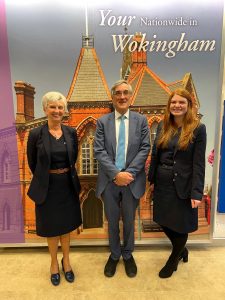I have received the following letter from the Minister about Cost of Living Support and the extension to the Household Support Fund which is available to Local Authorities.
Dear Colleague,
COST OF LIVING SUPPORT AND EXTENSION TO THE HOUSEHOLD SUPPORT FUND
The Government understands the pressures people are facing with the cost of living and is taking further action to provide vital support for those in need in the coming months. The Prime Minister has committed to cut the headline rate of inflation in half by the end of the
year.
We are also making further cost of living payments in 2023/24, including up to £900 delivered in three payments to those on eligible means-tested benefits, a £150 payment for those on eligible disability benefits, and £300 on top of Winter Fuel Payments for pensioner households. Benefits and pensions will also increase by 10.1% in April, with the minimum wage also seeing its largest ever cash rise hitting £10.42 an hour.
The Energy Price Guarantee is also continuing to protect customers from increases in energy costs and, from April 2023 until the end of March 2024, meaning a typical household bill will be around £3,000 per year in Great Britain, while equivalent support will continue to be provided in Northern Ireland.
The Government is also providing an additional £1 billion of funding, including Barnett impact, to enable the extension of the Household Support Fund in England in the next financial year. This is on top of what we have already provided since October 2021, bringing total funding to £2.5 billion.
In England, the Household Support Fund, backed by £842 million, will run from 1 April 2023 to 31 March 2024, enabling Local Authorities to help households with the cost of essentials. The Devolved
Administrations will receive consequential funding as usual through the Barnett formula to spend at their discretion.
This year-long extension allows Local Authorities in England to continue to provide this support. Local Authorities have the flexibility and discretion to design their own local schemes within the parameters of this guidance and grant determination that we have set out for the fund. Local Authorities have the local knowledge and ties to best determine how this support should be provided to those in need in their local communities.
Local Authorities have been asked in the scheme guidance to support households in the most need, and in particular those who may not be eligible for the other support government has recently made available. Local Authorities are expected to help eligible households with the cost of energy and water bills, food and other related essentials. Authorities can deliver the funding in a number of ways that they deem most suitable, such as by paying into bank accounts, or via the provision of goods.
Today, the guidance and grant determination for this forthcoming extension have been published, and can be found here.
This extension, in addition to the previously mentioned initiatives, will work to help those in need. We would be grateful if you could direct constituents in need of support to their Local Authority or Devolved Administrations who will be able to help them access the local support available to them in the coming months.
I am placing a copy of this letter in the House Library.
Mims Davies MP
Minister for Social Mobility, Youth and Progression
Wokingham Council will receive £1,051,147
West Berkshire will receive £1,389,666
